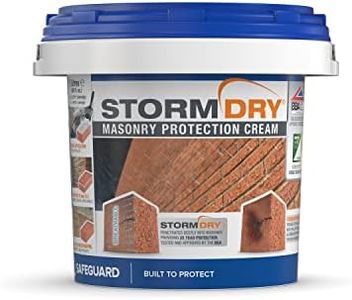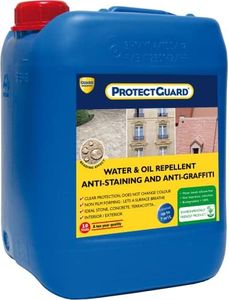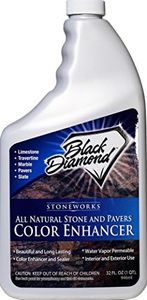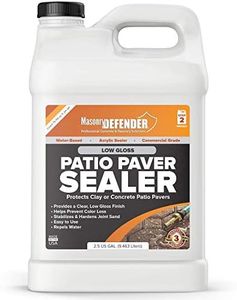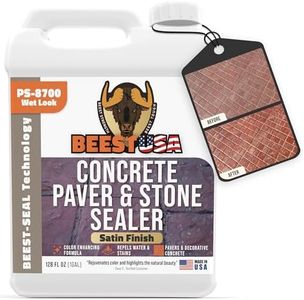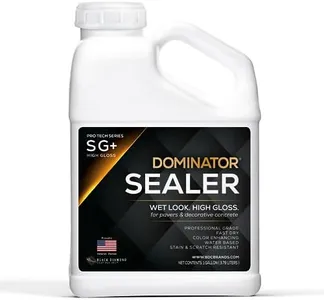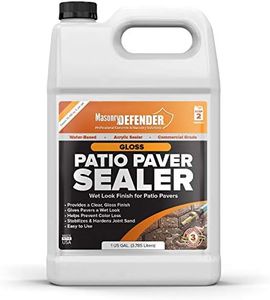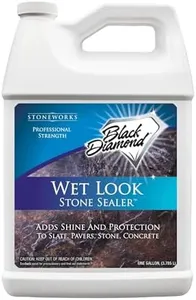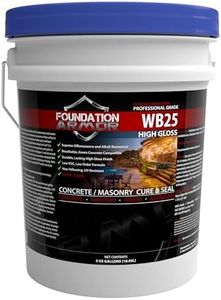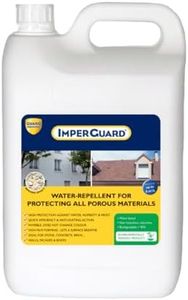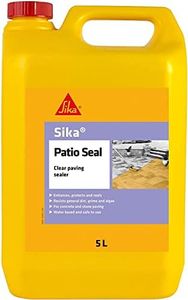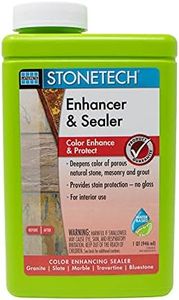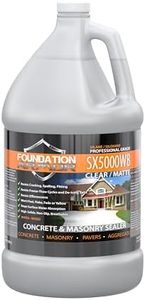We Use CookiesWe use cookies to enhance the security, performance,
functionality and for analytical and promotional activities. By continuing to browse this site you
are agreeing to our privacy policy
10 Best Paver Sealers
From leading brands and best sellers available on the web.By clicking on a link to a third party's website, log data is shared with that third party.
Buying Guide for the Best Paver Sealers
Choosing the right paver sealer can make a big difference in how your patio, driveway, or walkway looks and lasts. A sealer protects pavers from weather, stains, and fading, while also enhancing their color and appearance. Before you buy, think about what you need: Do you want a natural look or a glossy finish? Is the area exposed to lots of rain, sun, or car traffic? By understanding the main features and how each one affects performance and looks, you'll find something that matches your goals for durability, maintenance, and style.Sealer Base TypeThe sealer base type refers to whether the product is water-based or solvent-based. This affects how it looks, how easy it is to apply, and how it performs over time. Water-based sealers are easier to use, dry faster, and often have fewer odors, making them great for most homeowners. Solvent-based sealers can provide a richer color and higher gloss but may have strong smells and require more care during application. Think about your comfort with application and the environment where you’ll use it to choose the right base.
Finish LevelThe finish level is all about how shiny or natural the pavers will look after sealing. You’ll usually find options like matte, semi-gloss, and high-gloss. Matte finishes keep the pavers looking natural and are good if you want a subtle effect. Semi-gloss finishes give a slight shine and can make colors pop. High-gloss finishes are shiny and dramatic, drawing attention to the paving but may get slippery when wet. Pick a finish that matches your taste and the slip-resistance you prefer, especially if the area is a walkway or poolside.
Protection TypeThis refers to what the sealer is designed to protect against—such as water, oil, UV rays, or stains. Some sealers focus mainly on blocking water, while others offer extra protection against automotive oil, food spills, and sun damage. Check which hazards are most likely in your space: for driveways, oil resistance is useful; for patios or paths under trees, stain protection may matter most; and for areas in full sun, UV resistance keeps colors from fading.
BreathabilityBreathability means how well moisture trapped beneath the pavers can move through the sealer. Some products form a barrier that keeps water out but lets moisture escape, which is important in areas with freeze-thaw cycles to prevent damage. Non-breathable (film-forming) sealers can trap water and cause pavers to flake or crack. If your pavers are on soil or in a damp climate, consider a breathable sealer to avoid future problems.
Longevity and MaintenanceDifferent sealers last for different amounts of time before needing reapplication. Some low-maintenance options last several years, while others might need a refresh every year or two. Longevity depends on the environment and foot or car traffic. If you want to ‘set it and forget it,’ look for products known for long-lasting protection. If you don’t mind more regular care or want to change the look often, a shorter-lasting sealer might be fine.
Application MethodSealer products come ready for different application styles: some are roll-on, some must be sprayed, and others can even be mopped on. The right option depends on the size and shape of your space, your comfort with DIY projects, and whether there are tricky spots to reach. Larger or open spaces are faster to spray; smaller or detailed areas might be easier with a roller.
